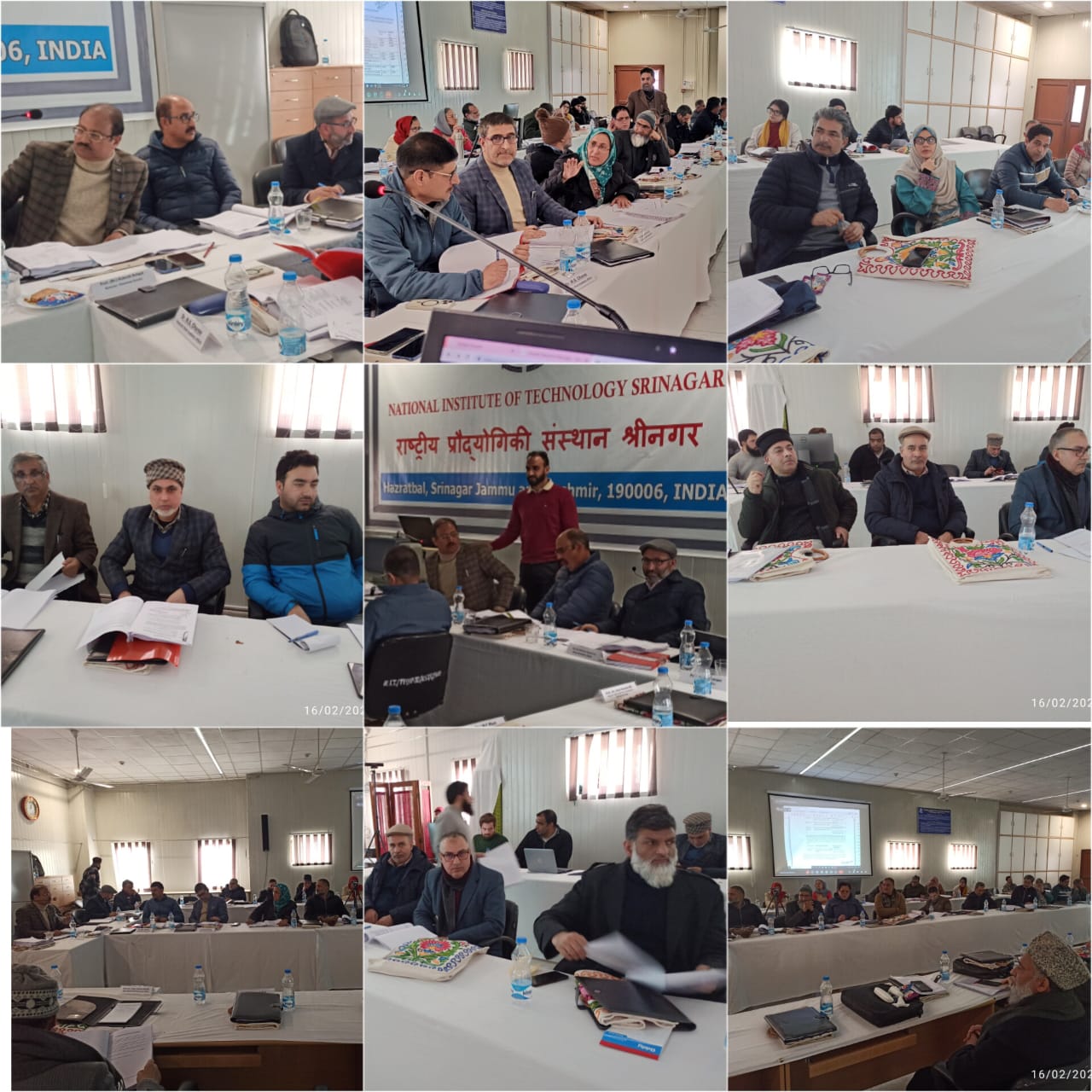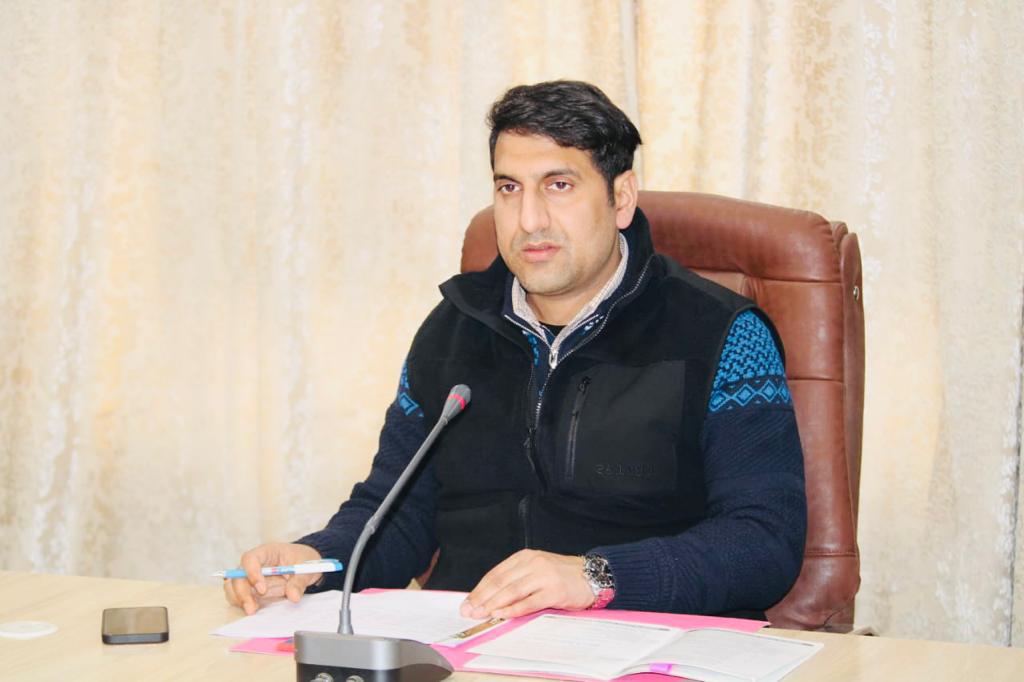Srinagar, Feb 16: The 32nd Senate meeting of National Institute of Technology (NIT) Srinagar was held on Thursday in which the Senate approved multiple entry and exit systems at UG, PG, and doctoral levels in tune with the National Education Policy (NEP) 2020 guidelines.
Apart from that various other issues pertaining to academics, students, and other schemes were discussed.
The Senate was presided over by Director NIT Srinagar, Prof. (Dr.) Rakesh Sehgal which approved NEP-2020’s multiple exit policy for B.Tech. Programme (4-year duration). It proposed three intermediate exit points during the B.Tech. programme. Moreover, a student can have a maximum of two exits during the entire programme obviously rejoining with a gap (not less than two academic semesters) after each exit.
“If candidate wants to rejoin within a gap of less than two academic semesters, he/she has to surrender the already issued certificate/ Diploma. The maximum duration for completing B.Tech Programme duration including the gap between exit and rejoining should not be more than eight years,” it said.
The Senate decided that students who had successfully earned at least 40% of the total minimum credits should be given Certificate. Diploma will be given to the one who has successfully earned at least 55% of the total minimum credits and Advanced Diploma will be given to the one who earned at least 70% of the total minimum credits.
Similarly, in the 2 year, MSc, and M.Tech program, the Senate approved a single intermediate exit point. From the date of joining the M. Tech Programme, the maximum duration of completion of program is proposed to be 5 years for the students who have taken an intermediate exit and rejoined for acquiring the substantive M.Tech./M.Sc.degree.
For Exit, PG Diploma will be provided for candidates who had earned credits successfully 50% but less than 100 %.
It also decided that PG Diploma in Management (PGDM) cannot be awarded upon exit from MBA programme after one year. PGDM programme is normally of two years duration and is considered to be equivalent to MBA. So therefore, there should be no exit policy for MBA programme.
Similarly, for Ph.D. Programme guidelines were issued for multiple exit policy during the Senate meeting.
The Senate also approved start of new scheme in an academic curriculum for M. Sc. (Mathematics) from the Autumn Session-2023. Proposal of revision of internship/training fee for Non-NIT.
“Modification of PDF rule for Supervision of Postdoctoral Fellows under Self Sponsored (Part Time) Scheme was discussed, adjustment of fee for admission to Post Doctoral Fellow from remittance by the sponsoring agency i.e. SERB-NPDF etc. towards Institutional Overheads.
On the occasion, Director NIT Srinagar, Prof. (Dr.) Rakesh Sehgal said apart from routine matters, some major decisions were also taken in the Senate. We have approved multiple entry and exit program system at UG, PG and doctoral levels in tune with the NEP-2020 guidelines, he said.
“NEP2020 has revolutionized higher education sector in India. It is the first Indian public policy on the issue of education in the 21st century, pushing for an ‘overhaul’ and ‘revamping’ of the education sector in the country,” he said.
“The Senate also approved the start of a new scheme in an academic curriculum for M. Sc. (Mathematics) from the Autumn Session-2023.”
” Now newly recruited Assistant Professors were allowed to be a Supervisor under the Self Sponsored (Part Time) scheme with some potential eligibility criteria for their career growth,” he said.
Prof. Sehgal said the administration is committed to make NIT Srinagar among the best engineering institutes in India and we are working on it.
Institute’s Registrar and Secretary Senate, Prof. Syed Kaiser Bukhari said it is a welcome step as NEP 2020 is an ambitious and futuristic policy that strives to remove rigid boundaries.
“It has created new possibilities for students to choose and learn the subjects or courses of their choice,” he said.








